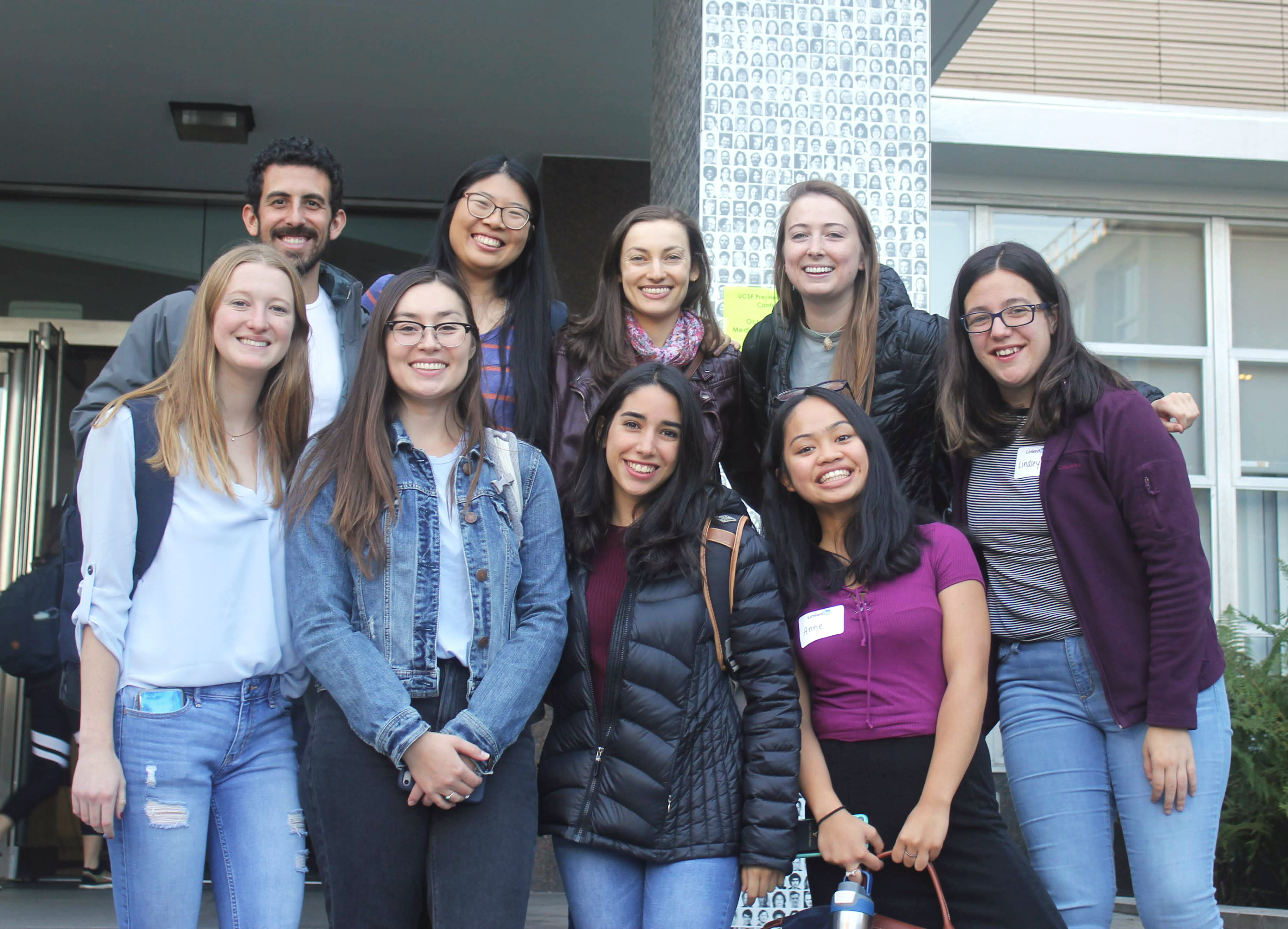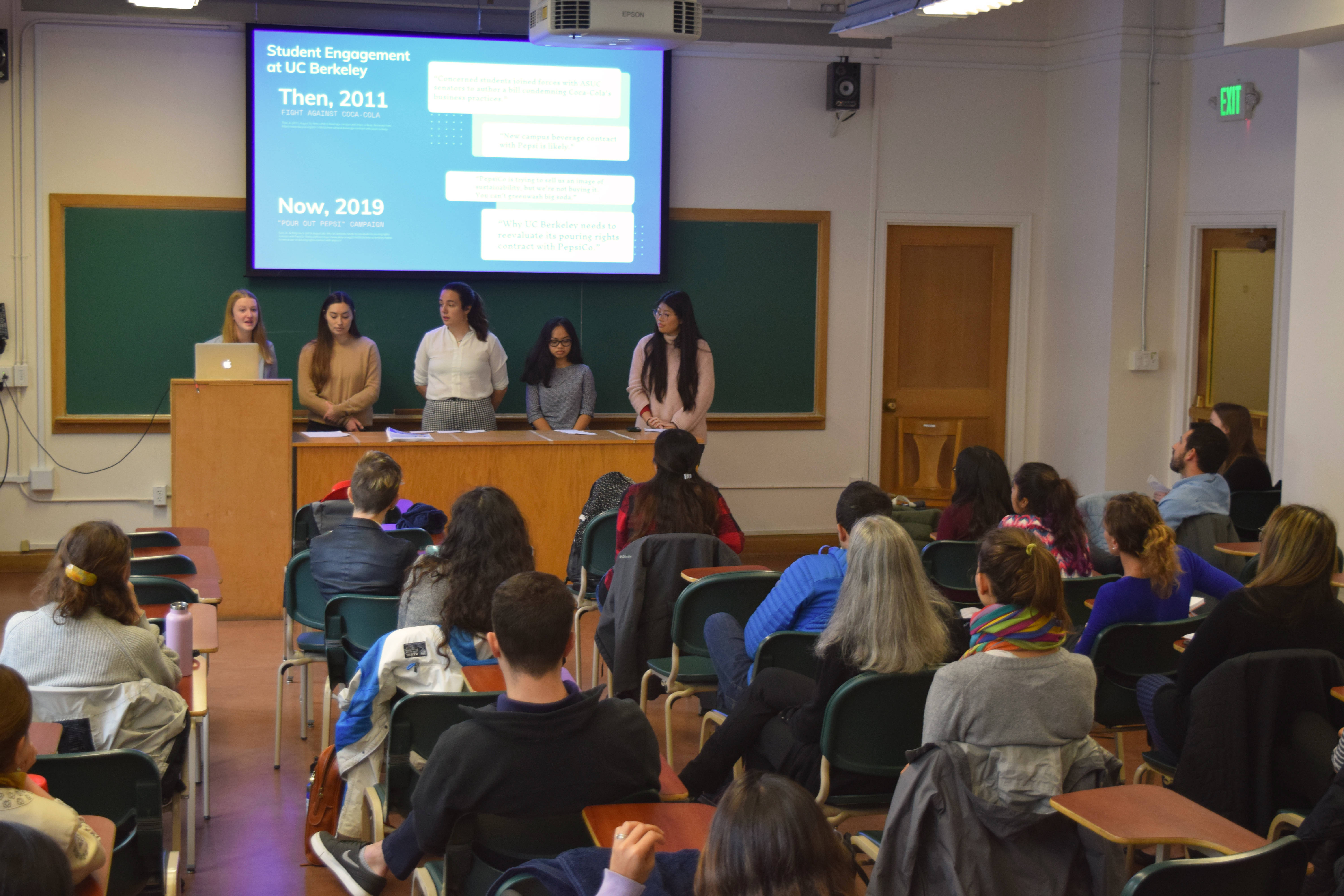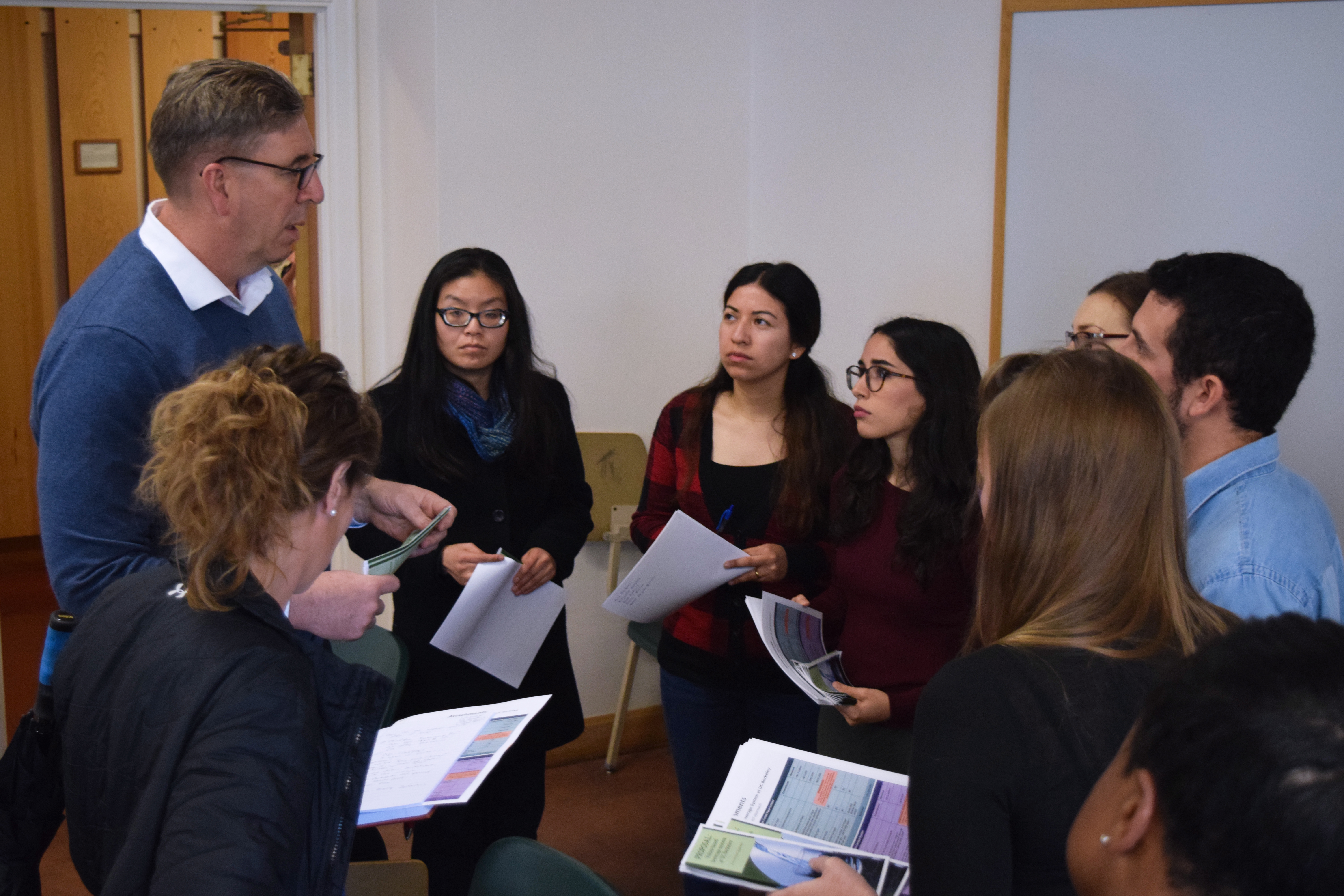If you spend enough time walking around UC Berkeley, you are bound to see a student, staff or faculty member, or a campus visitor carrying a bottle of water, an energy drink, or a can of soda. Less apparent is the fact that, no matter which beverage, it’s likely a Pepsi product. While there appears to be a wide variety of single-use beverages available on campus, the vast majority are in fact brands owned by PepsiCo, owing to UC Berkeley’s 10-year, exclusive pouring rights contract with the multinational beverage giant.
Commonplace among universities large and small across the nation, this type of contract stipulates that the university can only sell Pepsi-affiliated beverages (with some exceptions) across campus—including at athletic events, in vending machines, and even in the dining halls. Contracts of this nature have become so popular partly because they provide significant sponsorship money to universities; for UC Berkeley, that amounts to approximately $1.3 million per year. But many schools have begun to challenge these corporate partnerships, especially when that corporation’s practices don’t align with community values. UC Berkeley’s contract is set to end in July 2021, and campus officials are assessing whether to renew the current contract or enter into a new one.

Several of the case design students visiting UCSF, which has banned the sale of all sugar-sweetened beverages (SSBs) on its campus. Photo by Rosalie Z. Fanshel.
At UC Berkeley, the countervailing force against this model continues to come primarily from students concerned with environmental sustainability, human health, and corporate responsibility. The disruption of this model, in an attempt to better serve all UC Berkeley populations, came to fruition through the Coalition for Healthy Campus Food and Beverages as part of the UC Berkeley Foodscape Map, an ongoing effort to address the campus’ food landscape to better serve its communities. In April last year, Berkeley Food Institute (BFI) staff and student fellows organized the Healthy Campus Food and Beverages Innovation Challenge, a two-day event where student teams assembled to rethink beverage service on campus.
It quickly became apparent that two days was not enough time to address the complexities of the challenge, so BFI created the semester-long Coalition for Healthy Campus Food and Beverages Fall 2019 Case Design course. “The students who were involved in the Innovation Challenge put in a lot of work, but we knew something more was needed to go deeper into such a complex problem,” noted former BFI fellow and recent Public Health graduate Joyce Lee, who spearheaded the Innovation Challenge and was a student in the Case Design class.
The class was taught by Rosalie Z. Fanshel, BFI staff program manager and PhD student in Environmental Science, Policy, and Management. Students worked in close conjunction with experts in the College of Natural Resources, including ESPM associate professor Alastair Iles and Agricultural and Resource Economics PhD student Scott Kaplan.

Students from the “contracts team” presenting their revised model for pouring rights contracts on campus. Photo by Jacob Shea.
The course addressed issues of environmental sustainability, health and health equity, and corporate responsibility within campus beverage procurement, leveraging the work and expertise of 10 undergraduate and masters students from various academic programs, including business, environmental economics, and public health. The students divided into two teams: the “contracts team” was tasked with crafting a policy in which Berkeley maintains a pouring rights contract, while the “no-contracts team” focused on the campus moving away from such agreements.
First, students took a deeper look at the history of UC Berkeley’s beverage procurement landscape. They then analyzed the university’s past efforts to promote environmental sustainability, health, and corporate responsibility, in relation to beverage procurement. After studying the history of pouring rights at UC Berkeley, the students turned to other university models, such as how the University of Vermont and other campuses broke ties with major soft drink companies. To assess potential options, students spoke with a wide variety of experts and stakeholders, including professors, industry leaders, and student athletes.
In addition, the class made off-campus site visits to better understand beverage service outside of UC Berkeley. They spoke with Dan Henroid, Director of Nutrition & Food Services and Sustainability Officer at UC San Francisco, which has banned the sale of all sugar-sweetened beverages (SSBs) on its campus. The students also visited LinkedIn’s San Francisco headquarters to evaluate the company’s stated priorities to emphasize the health and well-being of employees—and the planet—in its corporate dining and beverage service.

Students had the opportunity to receive feedback from campus stakeholders on their proposals at the final pitch session. Photo by Jacob Shea.
Next, students crafted original, detailed proposals for alternative beverage service. These proposals integrated the campus values of environmental sustainability, health and health equity, and corporate responsibility, while also accounting for financial sustainability through detailed cost-benefit analyses, in replacing current sponsorship funds the University receives. Proposals were then presented to community stakeholders and campus decision makers at the course’s final pitch session. Alejandra Marquez, a CNR undergraduate who participated in the course, noted the importance of incorporating these processes in the final proposals: “We made cost-benefit analyses, did financial modeling, and had storytelling workshops; I learned all of that, but what really struck me was the depth of understanding and analysis needed to see the whole system and imagine something better.”
While the course itself has officially ended, the work of these ten students will carry far into the future. Negotiations for the next decade of beverage service at UC Berkeley have already begun, and campus officials, students, and others involved in making decisions around pouring rights contracts at UC Berkeley can use these models and analyses to prioritize environmental sustainability, health and health equity, and corporate responsibility. To learn more about the class and the push for values-based beverage procurement on campus, view the proposals created by the students on the Coalition for Healthy Campus Food and Beverages website.
